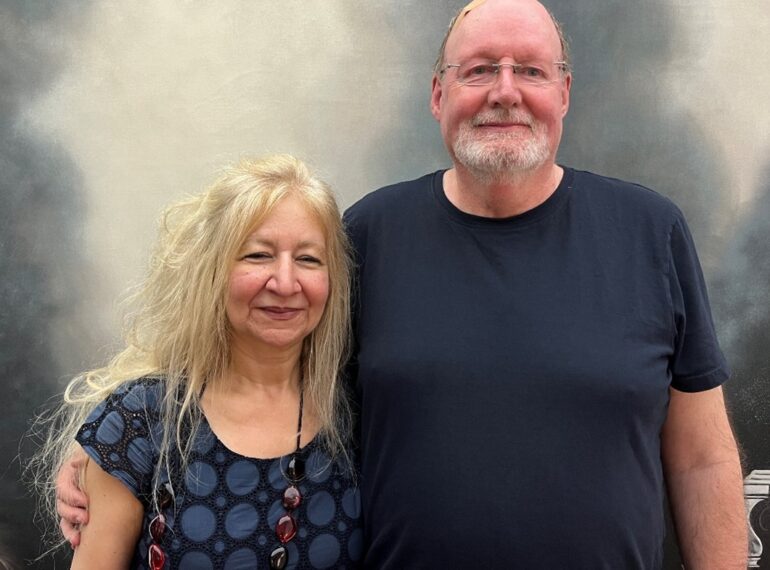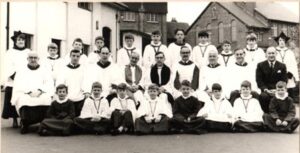Andrew’s work affects the lives of millions

Dr Andrew Thomas’s social policy research helped pave the way for major changes in the way the British state operates, ranging from the development of HMRC’s web-based tax returns to the ending of statutory retirement ages.
Yet Andrew (OE 1966-1971), who is now fully retired himself, started his working life in a very different field, going into retail banking when he left QE after his first term of A-levels.
 “Although I enjoyed school enormously and made many friends, I did not enjoy lessons – at the time I was not very academic,” he said. He was a choirboy during his QE years at St Mary’s Church, East Barnet, where both choirmasters were QE Physics teachers! Pictured here are Mr ARW ‘Gabby’ Hayes (third from the left in the second row) and Mr Donald Fairbairn (sixth from the left, also second row), with Andrew, aged about 12 or 13 (back row, second from the right).
“Although I enjoyed school enormously and made many friends, I did not enjoy lessons – at the time I was not very academic,” he said. He was a choirboy during his QE years at St Mary’s Church, East Barnet, where both choirmasters were QE Physics teachers! Pictured here are Mr ARW ‘Gabby’ Hayes (third from the left in the second row) and Mr Donald Fairbairn (sixth from the left, also second row), with Andrew, aged about 12 or 13 (back row, second from the right).
He left banking after three years to attend Barnet College of FE (1974 – 1976) to take A-levels, and then went on to read Psychology at York University. There he was offered a Social Science Research Council grant to pursue his undergraduate research. He later gained his doctorate, also at York, and was awarded the KM Stott prize for distinguished post-graduate research.
Andrew initially worked as a Research Fellow for St Marys Hospital Medical School and Charing Cross Medical School exploring, with a consultant paediatrician and a speech therapist, The transition to adulthood for young people with physical and learning disabilities (1983 – 1988) – research that was published in a number medical and scientific publications, including the British Medical Journal. He even published one academic article jointly with his brother, Roger Thomas (who was featured in the Summer Term edition of QE Connect), on how to prevent children from smoking.
Subsequently moving into social policy research, using qualitative methods, he worked for eight years for the National Centre for Social Research. He left to set up a new Social Policy Research Centre at BMRB/Kantar, where he was promoted to Director after a year.
In all, he spent 19 years with BMRB/Kantar, undertaking and managing some 350 social policy research projects. “While I undertook research for the majority of Government departments, my main clients were the Department for Work and Pensions, HM Revenue & Customs and the Department of Employment. 90% of the research is in the public domain.”
He retired from the company in 2015 and went freelance. Fully retired since COVID-19 hit in 2020, he maintains an interest in social policy issues, but his focus in retirement is more community-orientated: he is a church warden, treasurer for two church councils, and chair of his local parish council. He is pictured, top with his wife, Mona.
